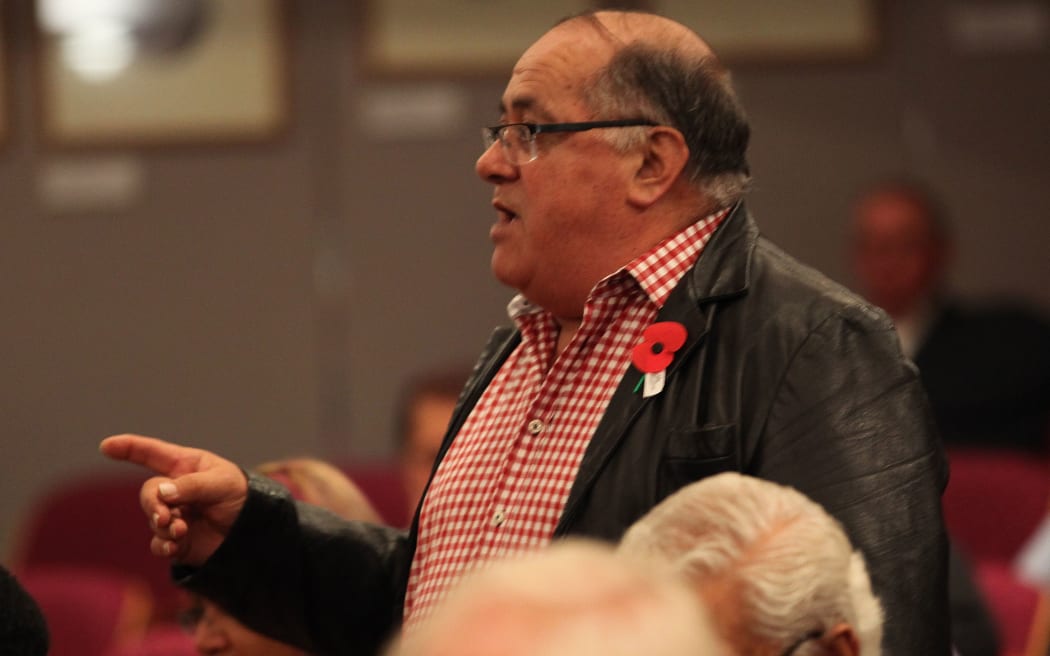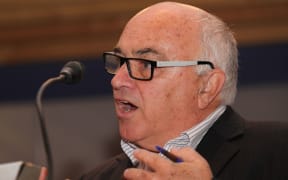A Te Ātiawa kaumatua says he wants a statutory Māori board established in New Plymouth following the failed attempt to create a Māori ward.

Te Atiawa kaumatua, Grant Knuckey wants a statutory Māori board established in New Plymouth. Photo: Glenn Jeffrey
Grant Knuckey was one of about 30 Māori from various Taranaki iwi to attend a hui at the New Plymouth District Council chambers this week to discuss wider representation issues on council.
Despite being about issues such as how many councillors there should be and what local boards should remain or be created, Mr Knuckey said the meeting soon became focused on how to improve Māori representation.
He said he favoured a statutory Māori board similar to the one created for the Auckland supercity.
One advantage of a statutory board would be that it would be council funded, Mr Knuckey said.
"At the moment we do all this work for council at our own personal cost and that's why we don't get our people engaging for very long.
"We need some more resources to help our people get the right representation that they are entitled to have like Pākehā people, that's all."
Mr Knuckey said a lot of discussion would be needed to find the right mechanism for appointing people to a board if one was given the go-ahead.
The status quo was not acceptable because the council was not meeting its obligation to liaise with Māori, he said.
"I'm waiting for them to make a decision, what are they going to put in place? They're saying to me they're meeting with iwi chairs, and I say to them 'well do they have a mandate, do they have a constituency that they represent?' "

New Plymouth Mayor Andrew Judd. Photo: RNZ / Robin Martin
New Plymouth Mayor Andrew Judd says a statutory Māori board was also his preferred option for tāngata whenua representation but it would require Government to legislate for it.
"That's an option that's been used up in Auckland but that's been made by resolution of the Government. We can't put that up as our own option although there is a form of that being done in Rotorua but it is not statutory binding option. It could be overturned by a new council.
"The model which Grant is talking about is something that is permanent and that I agreed to myself. What we need to do is find a permanent solution for Māori representation.
"Auckland is lucky because through the amalgamation the Crown has made the Māori board a permanent legal entity. Which comes back to my challenge to the Government: why is there such inconsistency? You've legislated for Auckland but done nothing for the rest."
New Plymouth's kōmiti Māori was disbanded following local government elections in 2013 after Māori complained it was toothless.
An attempt to give Māori voting rights on two of the council's standing committees was rejected by councillors in 2014, who opted instead to establish a Māori ward.
But the Māori ward idea was ditched following a citizens-initiated referendum in May.
This week's hui was part of a six-yearly review of council representation and any recommendations coming out of a series of meetings will go out for public consultation in August.





